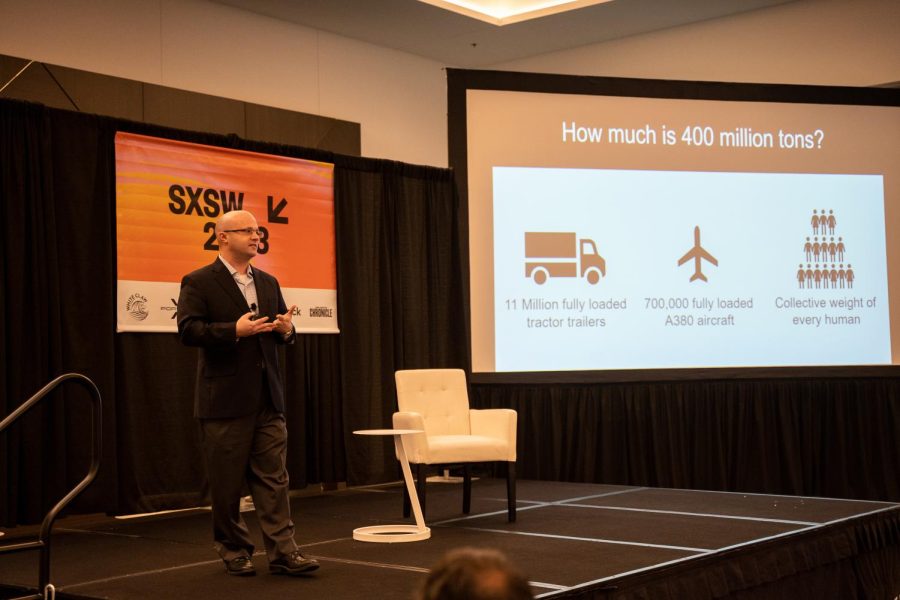UT chemical engineering professor gives SXSW presentation about plastic-eating enzymes
March 12, 2023
Plastics made today will not degrade naturally for 500 years, even in the best-case scenario and 1,000 years in the worse case, according to chemical engineering professor Hal Alper, who spoke at one of many UT-affiliated presentations at South by Southwest on Saturday.
Out of 8,300 million metric tons of plastic produced from 1950 to 2015, only 600 million metric tons have been recycled, Alper said. Plastic production, conversion and handling, Alper said, accounts for 3.4% of the world’s greenhouse gasses.
However, Alper said plastics remain essential to everyday life, such as clean bottled water when a water system goes down, although repurposing single-use plastics can only go so far.
“(Plastics) have been converted into park benches, playgrounds and synthetic playground chips, but it’s end-of-life,” Alper said. “You’ve taken something that was single-use, you’ve put it into one of these categories that has a longer life, and then it sits there for a while and then the plastic has to be dumped.”
A potential resolution to these problems lies within a plastic-eating enzyme, which breaks down polyethylene terephthalate (PET) plastics to its basic elements and allows for the materials to be repurposed and completely reused. These efforts, Alper said, led to FAST-PETase — Functional, Active, Stable and Tolerant PETase — which rapidly increases the breakdown speed of PET plastics to then be remade into infinitely usable materials.
“What if we could take PET and break it back apart to its starting material and then rebuild it back again?” Alper said. “That ability would allow us to fully recircularize and we’d have no need then to have to remake (plastic) from scratch. What if we made all the PET on the planet that we need to make already? … There’s a lot of potential associated with this (technology).”
This technology will not just help tackle the mass accumulation of plastic waste found in places like the Great Pacific Garbage Patch and landfills. Alper said FAST-PETase holds the capability to address the dangers of microplastics, which Alper said many people forget about.
“It’s estimated that cumulatively, 1.3 million tons per year of microplastics are released,” Apler said. “It’s a really large number — the challenge is we don’t see that number. We see … the trash island in the Pacific (and) and accumulation of plastic in landfills.”














